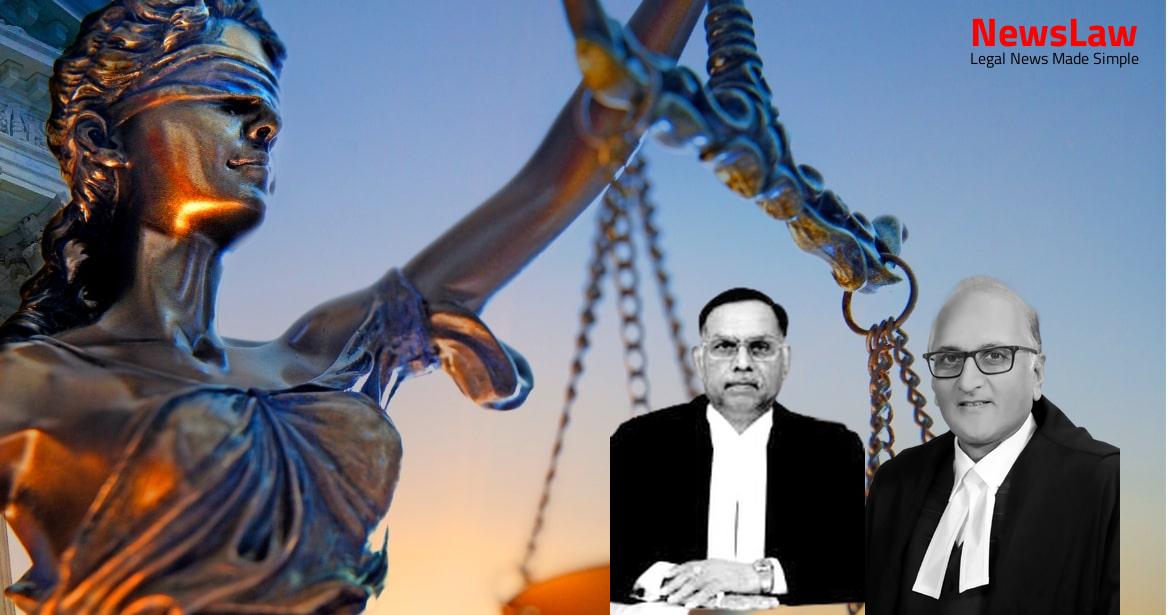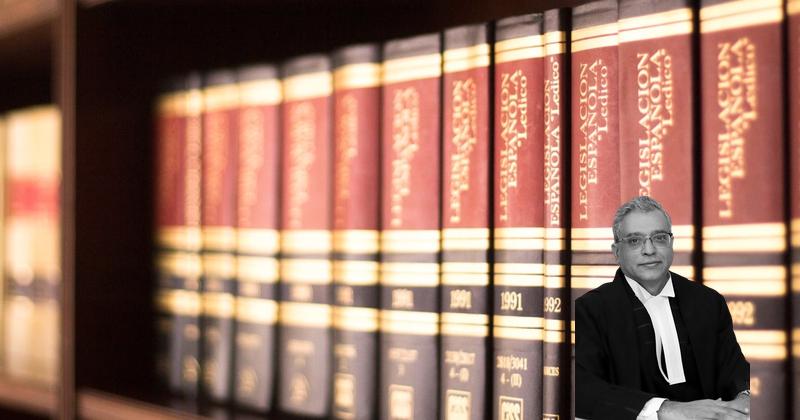The legal system’s commitment to transparency and fairness in administrative actions has been put to the test in a recent court case. Dive into the complexities of the court’s legal analysis, emphasizing the need for objectivity and impartiality in decisions made by authorities. Stay tuned for an in-depth exploration of the principles that uphold the justice system’s integrity.
Facts
- The Commission decided to cancel the written examination held on 21.01.2007 due to complaints of malpractices and cheating.
- A notice issued on 30.06.2008 cancelled the written examination scheduled for 20.07.2008 as well.
- The criteria for selection was allegedly changed by the respondent authority to favor certain candidates.
- The petitioners raised concerns about candidates being awarded higher marks in viva-voice and selected without the required qualifications.
- Delay in result declaration and discrepancies in evaluation methods were highlighted in the case.
- Various notices were issued by the Commission regarding the written examination and interview schedules.
- The selection process conducted by the Haryana Staff Selection Commission was found to be marred by deliberate manipulation of marks to accommodate favorites.
- The High Court set aside the entire selection process due to lack of transparency and manipulation of marks.
- The decision not to hold the written examination, and subsequent steps taken by the Commission Chairman without proper authority, were deemed unlawful.
- The criteria for selection was changed after the written test, indicating foul play by the Commission.
- Candidates with good academic records were deliberately given lower marks in the interview to exclude them from the select list.
- The High Court ruled that the entire selection process should be re-conducted from the point where it was deemed vitiated, and upheld this decision despite challenges.
- The selected candidates had their selection set aside by the Single Judge and the Division Bench, indicating irregularities in the selection process.
- The process lacked transparency in awarding marks in the interview, favoring candidates with poor academic records.
- The High Court ordered for the recruitment process to continue from the point it was tainted, acknowledging the flaws in the original selection.
Also Read: Interpretation of Lease Agreement and Compulsory Registration
Issue
- Whether the selection conducted by the respondent-authorities is fair, transparent, and sustainable in the eyes of the law?
- Whether the persons who did not possess the requisite educational qualification could be selected for the post?
- Whether the marks for the viva-voice were required to be bifurcated under various heads or changed subsequently after the commencement of the selection procedure at the whims of the respondent authorities?
- Whether any rational criteria was adopted by the respondent-authorities while awarding the marks for the viva-voce?
- Whether the marks allocated for the interview as per the advertisement could be changed subsequently after the commencement of the selection procedure at the whims of the respondent authorities?
- Whether the respondents have adopted a pick and choose policy while selecting the private respondents?
- Whether the petitioners should be allowed to suffer for no fault on their part, especially when they possess a better academic record compared to the selected candidates?
- Whether while making the selection, Articles 14 and 16 of the Constitution of India have been violated?
- Whether the action of the respondent-authorities is arbitrary, discriminatory, and unsustainable in the eyes of the law?
Also Read: Enhancing Compensation and Modifying Sentences: A Legal Analysis
Arguments
- The petitioners challenged the selection criteria only after the select list was published.
- The criteria of 60 marks for academics and 30 marks for interview was applied previously in 2003 as well.
- The allocation of marks in the viva-voice lacked guidelines or materials to indicate how marks were awarded.
- The selection process was criticized for lack of rationale criteria and merit-based selection.
- Concerns were raised about the arbitrary change in criteria to downgrade rather than upgrade selection standards.
- The High Court’s decision not to uphold the post-selection change in criteria was deemed appropriate.
- The power to devise selection criteria was entrusted to the Commission, and candidates who participate without protest cannot later challenge the criteria.
- The post of PTI has been converted to TGT due to the dying cadre status according to the Haryana School Education (Group-C) State Cadre Service Rules, 2012.
- Respondent writ petitioners could have challenged the criteria of selection after participating in the selection process.
- Decisions made to cancel the written examination, call candidates for interview multiple times the number of vacancies, and call all eligible candidates were considered arbitrary and seen as downgrading merit in the selection process.
- The Commission as a body was expected to make decisions regarding selection criteria, and it was questioned if certain decisions were made by the Chairman alone.
- A decision was claimed to have been taken by the Commission collectively on 03.08.2008 regarding the selection criteria for the post of PTI.
- The High Court accepted the challenge against the allocation of marks in viva-voce without specific allegations of mala fide against the Chairman and members of the Commission.
- The discrepancy in marks awarded in viva-voce between academically bright candidates and others was a point of contention.
Also Read: Transfer of Writ Petitions for Chartered Accountants’ Tax Audit Guidelines
Analysis
- The Chairman of the Commission made arbitrary decisions without any valid reasons.
- The change in selection criteria was solely the work of the Chairman and not the Commission.
- The decisions taken by the Chairman were not supported by any official records or meeting minutes.
- There was no genuine evidence provided to prove the authenticity of the decisions made by the Chairman.
- The decisions led to the downgrading of merit in the selection process.
- The criteria for selection was altered step by step, deviating from the initially published criteria.
- The Commission’s failure to inform candidates of the selection criteria until the final result declaration was deemed arbitrary.
- The High Court found that the decisions made were questionable and lacked transparency.
- The issue of malice in law was raised due to the suspicious nature of decisions made by the Chairman.
- The decisions were not justifiable and seemed to have been made for unauthorized purposes.
- The Commission shall consist of nine members including the Chairman
- A minimum of two members must have held office for at least ten years under the Government of India or the State Government
- Notification dated 21.06.2007 made changes effective from 20.04.2007
- Notification substituted paragraph 1
- For clause (d) in paragraph 6, a new clause was substituted with effect from 10 January, 2006
- The court emphasizes the importance of open competitive examinations as a gateway to public services to ensure fair selection based on merit.
- The distinction between ‘malice in fact’ and ‘malice in law’ is discussed, with ‘malice in fact’ referring to personal bias or oblique motives and ‘malice in law’ suggesting actions done without lawful excuse.
- Allegations of mala fides need substantial proof, with a heavy burden on the accuser to establish them.
- Any act of malice should be proven to be undertaken for improper motives or ulterior purposes.
- The principles of fairness and good faith are crucial for administrative actions, which should be free from ill will or malice.
- The need for impartiality and objectivity in administrative decisions is reiterated, especially in matters of recruitment and selection processes.
- The court emphasizes the burden of proof on those alleging mala fide actions, stating that vague or unsupported allegations are insufficient.
- Relevant legal precedents are mentioned to uphold the principles of fairness, legality, and proper exercise of power in administrative actions.
Decision
- Selected candidates were impleaded as parties in writ petitions and efforts were made to serve them.
- Various prayers were made in the writ petitions, including quashing the selection list and summoning relevant records.
- The selection made by the Haryana Staff Selection Commission for the posts of PTIs was quashed.
- The High Court upheld the judgment with the modification of restraining the appointment of selected candidates during the pendency of the writ petition.
Case Title: RAMJIT SINGH KARDAM Vs. SANJEEV KUMAR (2020 INSC 332)
Case Number: C.A. No.-002103-002103 / 2020



